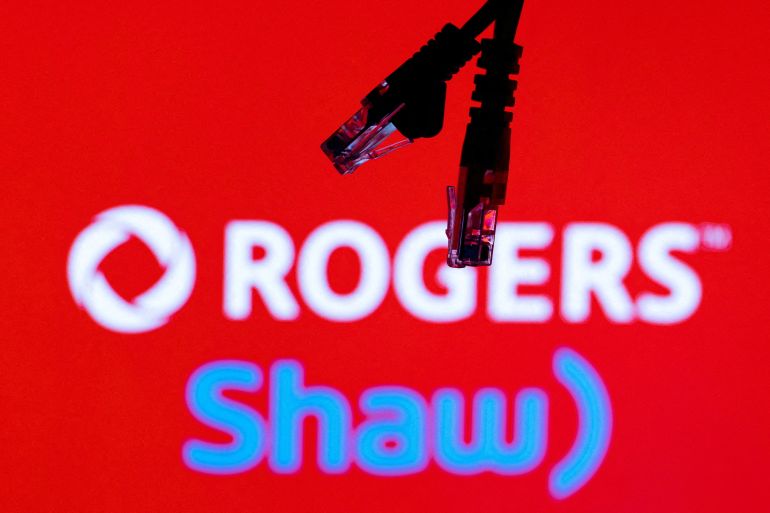Canada approves multibillion-dollar Rogers-Shaw telecoms deal
Massive takeover deal, first struck in 2021, faced challenges from Canada’s antitrust agency and consumer advocates.

Canada has granted final approval for Rogers Communications Inc’s $15bn ($20bn Canadian) buyout of Shaw Communications Inc, clearing a deal that will create the country’s second largest telecommunications company.
The green light for the deal came on Friday as Minister of Innovation, Science and Industry Francois-Philippe Champagne agreed to the transfer of wireless licences held by Shaw’s Freedom Mobile unit to Quebecor Inc under some conditions.
Keep reading
list of 3 itemsWhat the new US-Canada border deal means for asylum seekers
Canada bans TikTok from government devices over security concerns
Freedom Mobile’s proposed $2.1bn ($2.85bn Canadian) sale to Quebecor-owned Videotron has been crucial in addressing the antitrust concerns over the deal, given the overlap between Rogers and Shaw’s wireless divisions.
Champagne announced 21 conditions, including that Videotron should offer plans that are at least 20 percent cheaper than competitors and invest $111m ($150m Canadian) to upgrade Freedom Mobile’s network over the next two years.
He also restricted the transfer of Freedom Mobile’s licences for 10 years.
The Canadian government asked Rogers to set up a Western headquarters in Calgary and create 3,000 new jobs in Western Canada that must be maintained for at least 10 years while investing $4bn ($5.5bn Canadian) to improve network services.
A breach of the commitments will lead to a fine of up to $148m ($200m Canadian) for Videotron and $739m ($1bn Canadian) for Rogers, Champagne said while announcing a freeze on all major licence transfers in the telecom sector.
The Rogers-Shaw deal, struck in March 2021, will allow Ontario-focused Rogers to gain from Shaw’s strong presence in the sparsely populated regions of Western Canada and help it double down on its efforts to roll out 5G throughout the country.
The buyout had faced opposition from consumer advocates, politicians and rival telecoms companies because it unites two big players in a market that already has some of the highest wireless bills in the world.
But the Canadian antitrust agency’s efforts to block the merger were rejected by the Competition Tribunal and a Canadian court, in what was seen as a test case for the regulator’s ability to improve consumer choices in a country where a handful of companies control large swathes of business.
The deal’s closing date has been delayed four times.
It is the biggest in the Canadian telecoms industry since BCE’s spinoff of its stake in Nortel Networks in a transaction valued at $65.6bn ($88.7bn Canadian) in 2000.